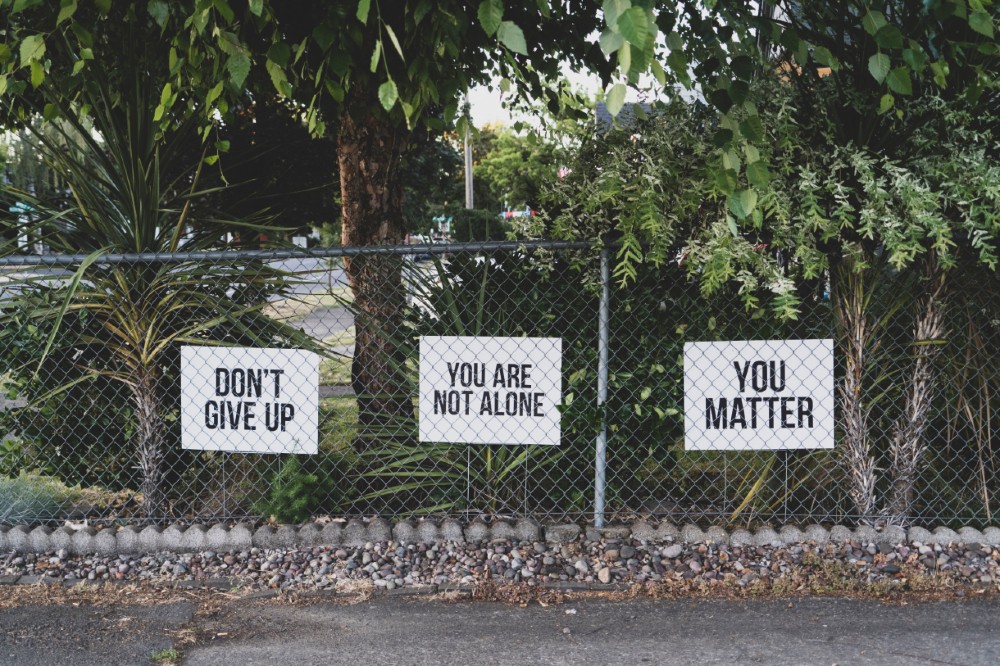Editors note: This editorial was written anonymously and brings important insight into an issue not often brought up or thought about. We at The American Genius believe this is an important topic to keep in mind about an often silent group that may think they are alone and face extra challenges everyday.
Whether you’re a veteran of working from home, or if you are someone newly learning that muting your mic is important, welcome. Working from home is both rewarding and challenging. This is not an instruction manual on how best to work from home. It’s a guide to working from home and not losing an already delicate mind to existing or potential mental illness.
Some ideas I’d like to convey should ring true now and in the future. However, one aspect is unique to now. I’m writing from the time of Coronavirus, also known as COVID-19. Workers have been divided into two groups, “essential” and “non-essential.” Those considered non-essential were sent home with hopes of slowing the spread of the disease. Those deemed essential, like doctors and grocery store clerks, were considered too vital to our way of life to stay home. One group unable to work, the other unable to stay home.
Then there’s us. A quasi third group. Those who have a job that is so tied to the glowy screen in front of them that it could be performed, in theory, from any location with a computer and internet. Theory was put to practice as many people – accustomed to commuting each day – suddenly learned the joy and perils of working in their jammies.
Working from home is not a new idea, but there had never been such a reason to push so many people to practice it. Some companies, historically, felt uncomfortable with workers staying home. With the arrival of COVID-19 they had a change of heart and now insist on it. Once and for all we will find out which meetings could have just been an email.
The pandemic has been hard on many people. If one is able to avoid the disease itself, they are still subject to staying in and staying isolated. Many never leave their home except for groceries or prescriptions. Some people thrive in this situation, but for others, it puts pressure on the mind and spirit. What about those who already have such a toll on their state of mind due to mental illness?
Working a job, or doing anything, with mental illness can be its own challenge. Mental illnesses and disorders that can affect your work include depression, PTSD, panic disorder, agoraphobia, and borderline personality disorder – just to name a few. So what happens when those who suffer from one or more of these mental health issues have to stay at home every day for work?
There are advantages. If a moment strikes you when you can’t be your professional self, you can often step away and have that cup of tea and peace of mind. Going heads-down and focusing on your task is where you might thrive. However, working from home can still mean having dead-lines and going to live meetings. Needing help or coordination from distant workers can quickly tax your social resources.
There will be a great deal of communication through multiple methods ranging from group video calls to instant messages. Things can get out of control quickly if you don’t set limits. When you want to reach someone it may be unclear which method to use. “Should I email or call them?” you might find yourself pondering. This can frustrate you to the point of not taking action at all. Getting a handle on the lines of communication is vital.
Request to have as few modes of communication as possible. You might find yourself responding to text messages, reading emails, taking phone calls, or answering instant messages from WhatsApp, Slack, or more. It will certainly create a growing obsession towards monitoring notifications rather than actual work.
If a consensus can not be found, give your coworkers clear communication on how you want to be reached, and ask them what they prefer. Needing to check the notification on so many apps is a recipe for a panic attack and overwhelming yourself.
Let’s consider meetings. You’ve seen it by now – or you will – a Zoom meeting with people saying “hello hello, is this thing on?” It’s amazing that in a time we all have computers in our pocket, that it’s still hard to coordinate things like your own audio, video, and even lighting conditions. If you suffer panic attacks it’s best not to be unknotting your earphones while the CEO is about to make a big presentation. Get ready early, check that you can be heard and can hear others. If another meeting is about to start, leave on time. Respect the start time of that new meeting. Overlapping meetings that never end are a sign that boundaries are not being observed. Boundaries are hard for most, but if you have a mental illness they can feel impossible to set.
On a similar note, let’s look at the start and end of work. Being on time is important. Wait, you just need to roll out of bed and turn on a computer? Great, but is it though? You get there just in time to say the proverbial “here!” If you are not ready to work, you are falling behind. Extend this idea to the day itself. When is the day over? Did you start a little late so you feel obligated to work a little later? Do you have a time when other people can expect that you won’t get their message until the next business day? Does working-from-home turn into working-all-the-time?
Getting to work on time also means leaving work on time. Those who have had a reactive or abusive partner know that setting boundaries can escalate situations instead of repairing them. Telling your boss “I’ll like to be offline after 6:30.” can result in the fear that you’ll just be told to close your computer and never return. But these are the boundaries one must set. Finding this work-life balance is doubly important for the mentally ill because we need to reserve time for ourselves for repair and growth.
Among all my reminders to you, remember to leave the house. In the time of COVID-19, this gets convoluted because “Stay home, stay safe!” is the phrase of the day. Having issues going outside can be a part of mental illness. In extreme cases, some people are afraid to go out the front door. With nearly everything being available for delivery now possible to stay home for days, but this is not a good recipe for mental health. When your day ends – and make sure it ends – get some fresh air and possibly some exercise.
Plan the rest of your day ahead of time. Look forward to it and go out and enjoy it. Day to day life is already hard with mental health issues. Don’t let working from home be another hardship. Breath deeply, take care of your mind and don’t let the mixture of home and work overwhelm you. Don’t forget your most important job is to take care of yourself.
The American Genius is news, insights, tools, and inspiration for business owners and professionals. AG condenses information on technology, business, social media, startups, economics and more, so you don’t have to.











































Pingback: Healthcare during pandemic goes virtual, looks to stay that way